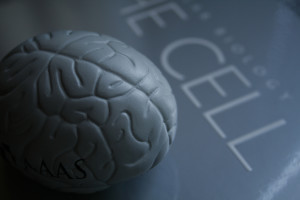
Maintaining brain health for people with dementia
Physical health, nutrition, mood . . . caregivers of aging parents with dementia are vigilant about monitoring and addressing so many aspects of their loved one’s well-being, but what about brain health? The emotional roller coaster which comes with processing the cognitive decline of a parent or other loved one can be tumultuous, and for many, simply accepting and managing dementia symptoms becomes the day to day priority. Is there anything you can be doing though to aid your loved one’s brain health and perhaps strengthen it in the early stages of decline?
Science says yes. A 2015 study from the Journal of Physical Therapy revealed that cognitive therapy combined with fine motor activities not only showed enhanced cognition, but improvements in depression and day to day living, as well as a lessening of the degree of dementia in participants.
The Alzheimer’s Society reported in 2014 on research commissioned by King’s College London and the London School of Economics that the number of people in the U.K. with dementia will climb to over 1 million by 2025. Currently, an estimated 1 out of 14 adults in the U.K. over the age of 65 have dementia. Chances are if you are not caring for a parent with cognitive degeneration, you know someone who is.
Don’t miss these 3 fine motor skill activities for aging parents that could help:
Therapy Putty
Essentially like a play-doh for older adults (and other patients with special needs like autism), therapy putty is a malleable ball of a synthetic dough-like substance which can be molded and maneuvered by hand. Therapy putty strengthens dexterity, relieves hand pain (like from arthritis), improves coordination, and helps older adults practice their fine motor skills.
Often available in sets of varying strengths from degrees of soft to firm, playing with therapy putty is an ongoing activity that can help return nimbleness, strength, and coordination back to your parent’s hands. It has also been utilized to help relieve stress and anxiety, which can be extremely beneficial for disoriented or frustrated parents with dementia.
Colouring
Gaining widespread popularity in the past five years, adult colouring can be a beneficial fine motor activity for older adults with dementia. What’s great about it is that you don’t have to be an artist or expert creator – colouring books with beautiful open mandalas and flowers, for example, give your parent all the canvas they need to get creative.
Not only does holding coloured pencils and markers hone and strengthen hand health, but sticking within the lines and processing colours and paths reinforces coordination and concentration skills as well. Studies show that colouring can also help relieve feelings of stress and anxiety – focusing on something beautiful which you are creating yourself can help negative emotions melts away and might possibly aid memory function too.
Origami
The ancient Japanese art of folding paper into shapes and animals also falls on the craftier side but can be a fun and brain-boosting activity for older adults with dementia as well. As the artform is taught as a series of steps involving folding and turning, origami is great practice for listening, memory, dexterity, and following instructions.
This mental workout also helps sharpen hand/eye coordination and has been shown to boost blood flow to the prefrontal area of the brain’s cerebrum, naturally enhancing cognitive function. For older adults with dementia or Alzheimer’s who may feel stressed or anxious over having conversations with people, they do not recognize, origami provides a more soothing and peaceful cognitive exercise.
Additional fine motor activities that stimulate cognitive function and neural communication in the brain include playing instruments, doing puzzles, playing games like ring toss and bowling, as well as matching picture cards. Fine motor activities are like mental weight lifting – regular practice may help reverse signs of dementia or possibly slow the rate of decline.
With thanks to Joe at Vive Health for this guest post contribution.

